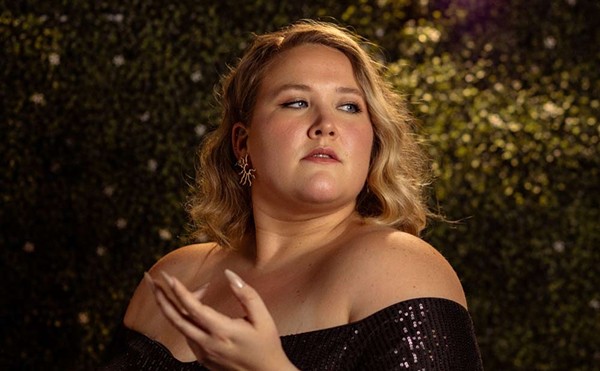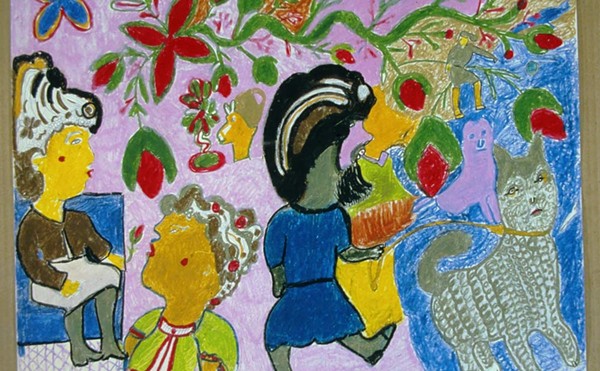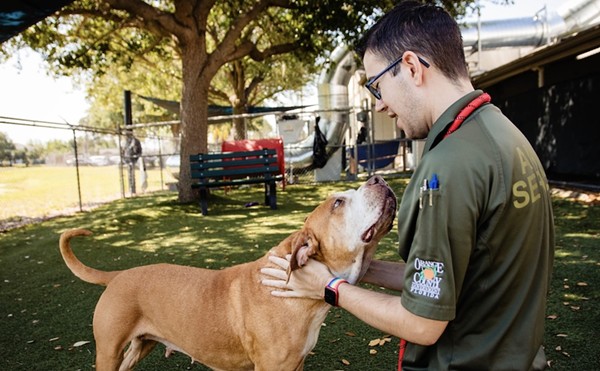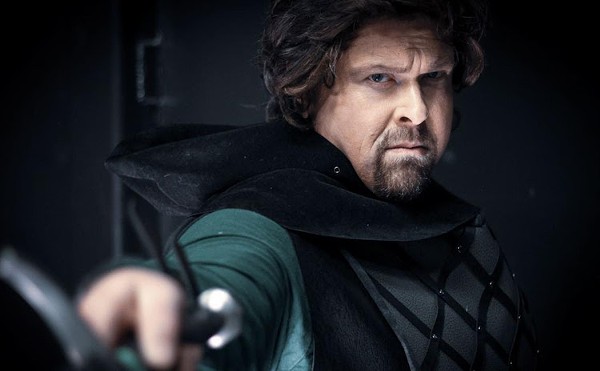The trouble began, as it always does, with a Helen. I'm referring, of course, to Helen Fielding, author of 1997's "Bridget Jones's Diary." Perhaps you've heard of it? It was only 271 pages long, but the publishing boom it created grossed $71 million dollars in the last year alone, according to a recent report by ABC News, and launched a flurry of manuscripts that could bury a small nation in typescript. And it seems like they all made it to your local bookstore recently.
We're talking about Chick Lit -- a trend variously described as "breezy novels written by and about young women" (Fort Worth Star-Telegram); "stories of fallible, single professional women" (The Sydney Morning Herald); and "tales dominated by a plucky heroine who searches for her place in the big city" (Hollywood Reporter). (Chick Lit has arguably started its own cottage industry: articles about Chick Lit.) It's the bildungsroman of the spike-heeled, single girl -- and she's downing some Chardonnay at a multilevel bookstore display near you.
Chick Lit is often confused with romance literature, but it has little to do with bodice-rippers and frothy historical pas de deux. Its roots are in books like Mary McCarthy's "The Group," Helen Gurley Brown's "Sex and the Single Girl," Rona Jaffe's "The Best of Everything" and Nora Ephron's "Heartburn": works that linked the touchstones of their eras -- white-gloved marriages, career girls, the Pill, divorce -- to the women.
But not everyone is pleased to have this era defined by lovelorn, Prada-clad media mavens. In Barnes & Noble's glossy Book magazine, Anna Weinberg lamented, "Inside their dust jackets covered with shopping bags, martini glasses, shoes or purses, many of these titles really are trash: trash that imitates other, better books that could have ushered in a new wave of smart, post-feminist writing." In the United Kingdom, where they're even crazier for Chick Lit than we are, venerable authors Beryl Bainbridge and Doris Lessing tut-tutted at the onslaught of works like "Fashionistas" and "Jemima J: A Novel About Ugly Ducklings and Swans."
Ladies! critics rail. How many bitchy bosses, noncommittal boyfriends, urban families and Manolo Blahniks can a girl have?
But the deals keep coming. According to "Publishers Lunch," the daily web report of the publishing industry, readers can look forward to a slew of new titles like "Phi Beta Bimbo" and "Phoebe Fights Back" in the coming months. The Hollywood Reporter recently revealed that Hilary Swank snapped up the movie rights to "Legally Blonde" author Amanda Brown's new novel, "Family Trust," while Gigi Levangie Grazer's "Maneater" was optioned for $1 million-plus six months before the book appeared in stores. The whole thing has taken on such force that three new Chick Lit imprints have launched at Harlequin, Simon and Schuster, and Kensington Press; and Ballantine, Avon and Plume have devoted much of their upcoming lists to the genre.
New Chick Lit authors are also getting used to the idea of living larger than the typical first-time novelist. Initially reluctant, Caren Lissner (author of "Carrie Pilby") discussed her gradual acceptance of her book's pastel-blue lettering in an essay on Mobylives.com: "A recent trip to Barnes & Noble found `"Carrie Pilby"` on the 'Beach Reading' display with dozens of others, while poor ZZ Packer and Annie Proulx were relegated to the back of a row of new fiction," Lissner writes. "Who's going to accidentally have suntan lotion dumped on their cover -- them or me?"
Well, I have dumped veritable vats of suntan lotion in an exploration of the many heads of this publishing hydra. Below, please find the major Chick Lit breeds from this, the chickiest reading season on record -- and some of the rarer species -- in their native habitat.
The other woman (or man)
The breed: Obsession is a worthy subject -- after all, it fueled most of Shakespeare's works and, if I'm not mistaken, many a Lifetime original movie. Luckily, these ex-boyfriends and boyfriend's-exes don't stalk and destroy -- they merely grow, like a fungus, on the host's body, slowly eating away at all vestiges of her self-esteem. By the time their work is done, the heroine has lost her pride, her common sense and -- often -- a pair of good shoes. (She stands out in the rain a lot, looking up at windows.) But that's what makes her story such a hoot.
The prime specimen: "Her" by Laura Zigman (Anchor Books).
I don't know what happened to Laura Zigman between her childhood and her current incarnation as successful author, but it clearly involved some incredibly sucky partners. Her first book, "Animal Husbandry" -- which became the Ashley Judd vehicle "Someone Like You" -- informs us that men's treatment of women mirrors how, on the farm, bulls dismiss "old cows." This book tells the story of Elise, a free-lance editor of self-help books who becomes a little unhinged when lithe, French-speaking Adrienne, the ex-girlfriend of her fiance, Donald, moves down to Washington and inserts herself in the middle of their suddenly incredibly pedestrian, supremely vulnerable relationship. As in "Othello," stalking, misunderstandings and strangling -- sorry, that's shopping -- ensue.
Also-rans: "Bachelorette 1" by Jennifer O'Connell (New American Library), "Getting Over Jack Wagner" by Elise Juska (Downtown Press), "Good Girls Gone Bad" by Jillian Medoff (Perennial Press).
The boy next door
The breed: What Cinderella doesn't want to marry the Prince? After all, he's got the face, the bod, the big house and -- best of all -- the bank account. Sometimes, though, your prince is the little schlub around the corner, and you need only look up from your scuffed Jimmy Choos.
The prime specimen: "Coffee and Kung Fu" by Karen Brichoux (New American Library).
It's too bad that "Coffee and Kung Fu" is such a poor update of this venerable plot, in which a woman pursues a clearly unsuitable attachment, only to miss the love that's right under her nose. Of course, it's hard to top Jane Austen, who beat it to death in "Emma" and "Mansfield Park," and Jennifer Weiner's faultless "Good in Bed" sets a bar few could gracefully clear. But "Coffee and Kung Fu," the story of the love that blooms over a counter at Starbucks, is a watery brew by any standards.
Nicci Bradford, the daughter of missionaries, keeps in touch with her Far East childhood by watching Jackie Chan movies and brewing "real" tea, while studiously avoiding an attachment to her day job writing copy for a marketing company in Boston. After Nicci's best friend's husband feels her up at an office party, she spills the shameful tale to Michael, the coffee jerk across the street. He also likes kung fu movies and geographically correct tea, and they're off to the races! Family troubles and an affair with a glamorous boatswain interfere, but not nearly enough.
Also-rans: "Bookends" by Jane Green (Broadway), "The Quality of Life Report" by Meghan Daum (Viking).
The hard-as-nails hardcover
The breed: Hardcover is usually reserved for the old guard of romance writing -- those hefty tomes that are as gas-guzzling Cadillacs to the sleek, V-Bug appeal of Chick Lit's trade paperback. But sometimes a gal's been around the block, and she doesn't want to ditch her midlist roots for some snappy new rig that puts her shelf-side with a bunch of nubile young upstarts. Candace Bushnell -- whose "Sex in the City and "4 Blondes" combine snappy singletons with pure Dallas-era cheese -- is no fool: If your book has a dust jacket, your author photo can take up the entire flip side. And that Botoxed babe looks good!
The prime specimen: "Trading Up" by Candace Bushnell (Hyperion).
Before she met my mother, my grandmother declared that whoever had managed to snag her son must be one "foxy, shrewd article." My mild-mannered mother wasn't one, but aging (30-plus) Victoria's Secret model Janey Wilcox, whom we first met in 4 Blondes, certainly is. Staggeringly self-involved and ruthless to the point of self-abasement, Janey is on the hunt for a husband who can support her in the style to which she hopes to become accustomed. After she's befriended by Mimi Kilroy, a Kennedy-esque doyenne with cash and cachet to spare, her fortunes improve enough to land her such a man -- until an episode from the past rears up to bite her in the ass. I won't reveal the various plot twists, but Bushnell gives a new meaning to the term "Hollywood ending."
Bushnell, who got her start writing the now-infamous "Sex and the City" column for the New York Observer, has already taken a lot of heat for what is, admittedly, not a sparkling display of wordsmithery. But she's not a bad writer so much as an overwriter, ruining perfectly good starts such as, "Pretty girls were always told that their looks would make them special," with absurd and maudlin finishes: "Reluctantly, she tore herself away from the window, knowing that at heart she was that girl, the only difference being that somehow she was now a success, and married to a rich movie producer ... ." She's also woefully neglected by her copy editor: dangerously dangling participles -- "Being a Monday afternoon in June, the main street in East Hampton wasn't particularly crowded ... ." -- abound.
As Bushnell's prose overreaches, so do her clumsy attempts at depth: Critics were right to lambaste her attempts to link Janey to "The House of Mirth's" Lily Bart (she paints Janey's husband as an amalgam of the two main guys from Mirth, borrows its plot points and mentions the book prominently, in case you've missed any hints). But her detractors neglect two literary masters whom Bushnell genuinely resembles: With her humorously evocative names (is Splatch Verner not the bizarro-universe's Time Warner, and Roditzy Deardrum its Lizzie Grubman?) I caught a whiff of Henry James, and in the plot's impressive twists and contortions, just a shade of el patron himself, Charles Dickens. Not bad for a girl from small-town Connecticut.
Also-rans: anything by Rona Jaffe, Jacqueline Susann or Marilyn French.
The thinly veiled workplace tell-all
The breed: Once a trend is satirized in The New York Times' "Fashions of the Times" (see Joyce Chang's "It's a Mag, Mag, Mag, Mag World" in the Aug. 17 issue), it's a pretty sure sign that it's over. Still, editorial assistants who've fetched lattes and parried phone calls are storming the publishing gates, and, by my Ferragamos, they will be heard.
The prime specimen: "The Devil Wears Prada" by Lauren Weisberger (Doubleday).
Weisberger has already been spanked so thoroughly for her tremendously popular send-up of her tenure as Anna Wintour's assistant at Vogue, I'm reluctant to add to the carnage. (In a double KO by the Times, Janet Maslin snapped that in Weisberger's world, "Footwear is character," and Kate Betts, herself a former assistant of Wintour's, says that Weisberger "seems to have understood almost nothing" about Wintour or the inner workings of Vogue.) On the other hand, the film rights alone for the story of "Andrea Sachs" and her sojourn with the beastly "Miranda Kingsley" sold for six figures, so what the hell.
It's true that Weinberger's prose can be terrifying at times -- train wrecks like "her multi-carat, flawless diamond engagement ring emanated an incredible lightness" pepper the pages -- but for the most part, it's standard women's-mag copy: smooth, pert and a little bare, like an unfinished night table from Ikea (even one of which, incidentally, Andrea cannot fit into her closet-sized bedroom on the Upper East Side). Her flimsy characters -- Alex, a saintly boyfriend, Christian Collingsworth, a "hot young author," and drunken best friend Lily -- orbit Andrea like a cloud of gnats at whom, from time to time, she swats unconvincingly. The queen mosquito is Miranda, and, in the end, she remains as opaque and inscrutable as Wintour herself behind her signature sunglasses.
Also-rans: "In Full Bloom" by Caroline Hwang (Dutton), "Fashionistas" by Lynn Messina (Red Dress Ink), "The Nanny Diaries" by Emma McLaughlin and Nicola Kraus (Griffin).
Ethnick lit
The breed: Dazzled by the assortment of black-oriented books lining the front of most major booksellers, readers can be forgiven for forgetting that, as recently as the early '90s, most publishers were still reluctant to tailor books to black or Latino readers. Since the phenomenal success of Terry McMillan's "Waiting to Exhale," Random House, Simon and Schuster, and Hyperion have added black imprints to their lineups, and St. Martin's Press gave newspaper editor Alisa Valdes-Rodriguez a nearly $500,000 advance for her first book. Progress or publishers' version of segregation? It's unclear, but one thing is certain: Publishing has come a long way since McMillan had to hawk her first book, "Mama," from the back of her car.
The prime specimen: "The Night Before Thirty" by Tajuana "TJ" Butler (Villard).
This engaging and harmless nod to "Waiting to Exhale" tells the story of a radio contest, the Night Before Thirty Getaway Weekend, that gives five women verging on old hagdom a chance for one last hurrah. Catara, a personal shopper, is the fat one; gymnast Elise is the mouse; receptionist LaShawnda is stuck in a lopsided relationship with her (female) boss; pretty Tanya dates a thug; and high-maintenance Alecia can't admit that her bitchy maneuvers are costing her her own happiness.
The book sets up each conflict nimbly, gets each woman into the contest, then lets us watch them help each other to work out their problems. It's hokey, of course, the prose is often clunky and hackneyed, there is perhaps an overdependence on exclamation points (the book even ends in one), but dammit, you keep on turning those pages.
Also-rans: "Sexual Healing" by Jill Nelson (Agate), "The Dirty Girls Social Club" by Alisa Valdes-Rodriguez (St. Martin's).
Chick non-fiction
The breed: Wait -- doesn't Chick Lit's trinity of footwear, fashion and fooling around guarantee that, for most of us minimum-wage schlubs, it's got to remain -- well -- fictitious? Evidently not. Nonfiction Chick Lit includes all kinds of stuff: kicky self-help from Cindy Chupack, a "Sex and the City" TV series writer; pedigreed reminiscences of a publishing career from Strawberry Saroyan, William's granddaughter; and The New York Times food writer Amanda Hesser's cookbook-cum-memoir.
The prime specimen: "The Only Girl in the Car" by Kathy Dobie (Dial).
This memoir grew out of an essay originally published in Harper's, and, accordingly, Dobie's prose is closer to that of Marguerite Duras than to Helen Fielding's. The book, which chronicles Dobie's upbringing in New Haven, Conn., during the late '70s, is a dark, brooding tale about the costs of sexual desire. But it's not all gloom and doom: Dobie is a spirited, sensitive writer and handles her story with a deft touch and an absence of judgment that makes it all the more intense. This is your single girl in the city, all right -- with chops.
Also-rans: "Girl Walks Into a Bar" by Strawberry Saroyan (Random House), "The Between Boyfriends Book" by Cindy Chupack (St. Martin's), "Cooking for Mr. Latte" by Amanda Hesser (W.W. Norton).
Dick lit
The breed, the prime specimen and the also-rans, all in one: E. Lynn Harris doesn't write Chick Lit and he's not a woman, but he deserves a seat at this table nonetheless, for the following reasons: 1) "His Invisible Life" -- a kind of glossy, juiced-up version of James Baldwin's "Another Country" -- officially heralded the return of books about sexy, swinging singles in the post-AIDS era; 2) "Invisible Life" talked about so-called "brothers on the DL" (straight-identifying black men who secretly sleep with men) more than a decade before The New York Times got wind of the phenomenon; 3) Harris was a Razorbacks cheerleader at the Univers-ity of Arkansas; 4) Harris self-published the book in 1991 and sold it at black-owned businesses until, as his website states, he "was 'discovered' by Anchor books"; 5) Harris' covers, which feature glam, hip-looking black folks, are the forerunners of Chick Lit's snackable designs; 6) Harris' astonishing success broke ground for contemporary romance writers of all colors; 7) he's just published a memoir, "What Becomes of the Brokenhearted" (Doubleday); and 8) if the phenomenal success of "Queer Eye for the Straight Guy" is any indication, Dick Lit (Britain uses the more genteel "Lad Lit") is about to explode, big-time.
Who's your daddy?
[email protected]Did I just buy Chick Lit?
Test your purchase with this easy quiz!
1) Does the book's cover:
a) feature a shot of a woman's legs or torso, b) present the book's title in a loopy script, c) contain bright, appealing, Easter-egg-like pastels or d) otherwise appear an irresistibly delicious confection?
2) Is the book's author:
a) Jane Green, b) Helen Fielding, c) Melissa Senate or d) Jennifer Weiner?
3) Is the main character one or more of the following:
a) young, b) female, c) attractive or
d) single?
4) Does she worry about:
a) her weight,b) her career, c) the elasticity of her skin, d) her clothes or e) the fact that she is unloved and alone in the world?
5) Does she live:
a) in a crappy walk-up with former college roommate, b) in a post-collegiate group house with alienated peers, c) with her commitment-phobic boyfriend or
d) with an unhelpful husband and two needy children in whom she's rapidly losing interest?
6) Does she have one or more of the following:
a) a gay best friend, b) a snarky, disapproving feminist pal who needs to get laid, c) a mother who is the bane of her existence or d) a boyfriend whom all of the former despise?
7) Does she work at:
a) a women's magazine, b) a newspaper, c) a TV station or d) any other organization that can be linked, however tenuously, to "the media"?
8) Does her boss:
a) make her fetch, copy and carry things, b) pat her on the ass, c) give her sage, motherly advice from her comfortable suburban spread, complete with hubby and 2.8 children or d) resemble a well-known media personality?
9) Does she sleep with:
a) a young turk who just wrote a hot new novel, b) not enough people, according to her married best friend, c) her best friend's husband or d) a guy named Paolo?
10) Then, does she:
a) take fabulously humorous revenge on her boss and get a great job, thus emerging triumphantly from the dregs of her career, b) get over her ex-boyfriend, c) get over her boyfriend's ex, d) meet/marry a fabulous guy who's so much better than her stupid ex or e) realize the object of her affections is a stupid jerk, cease the affair with him immediately and return to her dreamy husband and children?
If you answered a, b, c, or dto any of the above, it is likely that you have recently purchased Chick Lit. Congratulations. If itching or irritation occurs, discontinue use immediately.
It's got legs
Chick Lit is such a steady seller, publishers Harlequin, Simon and Schuster, and Kensington Press have all launched new imprints dedicated solely to girl-powered fiction. So far, places like Ballantine, Avon and Plume have contented themselves with simply ceding major portions of their current and forthcoming lists to the genre. Here's a guide to the new femme-friendly presses.Red Dress Ink
In the fall of 2001, Red Dress Ink (tag line: "Life's little curves") got in on the action early, and it's no wonder -- it's owned by Harlequin, the largest and best-known publisher of romance novels in the world. Unlike Harlequin's staid, older imprints, Red Dress has its own swank website -- a blood-red portal that leads to the company's offerings in Australia, Italy, North America, the United Kingdom and Japan. The look is part of the effort, according to Newsweek, to "distance the new line from the lowbrow stigma associated with romance fiction." Harlequin's name doesn't even appear on the books.
Red Dress had a best seller with its first author, Melissa Senate, who wrote November 2001's "See Jane Date," which recently aired as a TV movie on the ABC Family channel (Charisma Carpenter starred). Since then, it has published more than 20 original novels, and it's looking for more -- unlike traditional publishers, Red Dress actively solicits unagented writers. In its submission guidelines, the imprint draws a bead on the kind of character it's looking for: "RDI heroines are growing up. They're not just 20-somethings on the dating merry-go-round. One thing they all have in common: something is missing from their lives. They've got something to learn. A journey to go on. And we want to be with them for every step."
That cultlike -- or inviting, depending on your view -- attitude permeates every aspect of the site: Besides message boards ("We want Red Dress to be all about you!"), far more author info than customary ("Red Dress is happy to introduce you to our awesome authors!"), pictures from its latest book party ("See some of your favorite RDI authors in living color!") and a reader-writing contest (Cheryl Jefferson snagged the $1,000 first prize for "Different Strokes" -- no word if Willis makes an appearance), each page, like a sorority pledge coordinator run amok, implores, "We want to hear from you! Feel free to contact us!"
Someone's clearly writing back. Harlequin's new romantic-comedy line, Flipside ("fun, witty, unexpected!"), launches this month.
Downtown Press
Simon and Schuster's Pocket imprint has a strong tradition of fat, fun paperbacks for women, but there's no way it was going to miss out on the Chick Lit craze. In May 2003, it launched Downtown Press ("Loving. Lusting. Learning. Living Large."), then showed in a recent ad campaign -- "Books that are better than boyfriends!" -- that it didn't mind playing on women's worst fears to make the sale -- "(Hey, at least they'll still be there in the morning.)"
Downtown's shopping-bag logo seems to mirror its catchall philosophy: Having gotten in late in the game, its titles appear to be mostly clones of proven bestsellers ("Larger Than Life" echoing "Good in Bed's" particulars is but one example). Literally squeezed in under the S&S umbrella (a click on "bestsellers" sent me to the entire company's most popular books, not Downtown Press'), with little author info, news or philosophical waxing from the publisher, Downtown appears primed for easy jettisoning -- sort of like the woman in its ads. Luckily, in a recent Philadelphia Inquirer article, Pocket VP Louise Burke confided that the heroine "sometimes figures out she doesn't need the man."
Strapless Kensington
Strapless Kensington is so new, there's no link to it off of Kensington's main website. (For those unfamiliar with the publisher, the New York-based concern has been in business for 29 years and calls itself the "last remaining independent U.S. publisher of hardcover, trade and mass market paperback books.") Its new line is all of nine books so far and debuts a new novel each month (it started this April and has books scheduled up to the coming holiday season). Billed as stories of "sex, sisterhood, sin and stilettos," some of Strapless' provocative offerings include Swan Adamson's "My Three Husbands," which introduces "Venus Gilroy, a woman whose heart is in the right place even if her shoes, her past and her taste in men are all wrong," and Alexandra Carew's "What Goes Around," which gives us "Cat Wellesley, a young Londoner unlucky in love and even unluckier in everything else." Strapless also recently ran a $1,000 shopping sweepstakes with a random drawing in this month that gives the winner a gift certificate to her favorite store or a spree at the local mall. No lineup of eligible males?

















